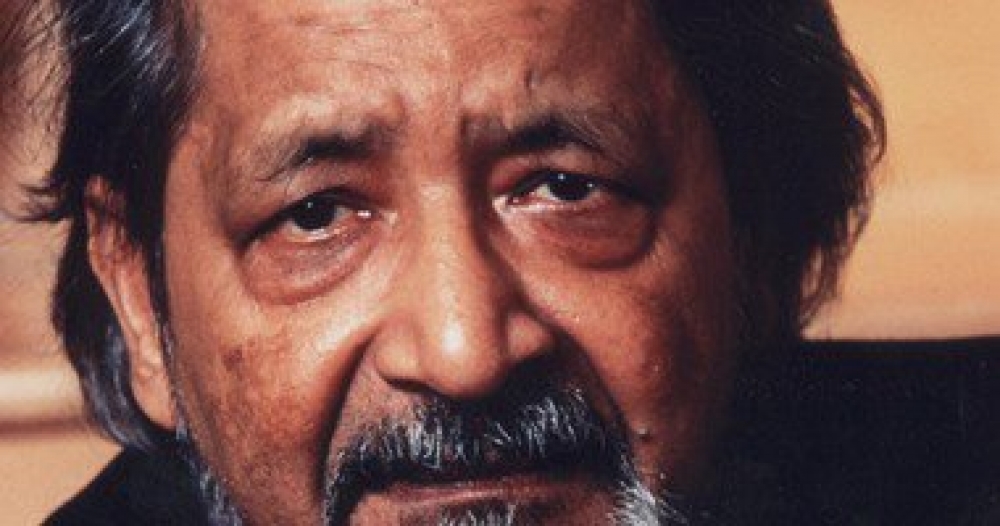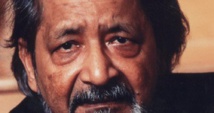"He was a giant in all that he achieved and he died surrounded by
those he loved having lived a life which was full of wonderful creativity and endeavour," she said in a statement.
Born to Brahmin Hindu immigrants in Trinidad in 1932, Vidiadhar Surajprasad Naipaul also won the Booker Prize in 1971 for his novel "In a Free State" and was knighted by Queen Elizabeth in 1990.
Novelist Salman Rushdie tweeted that he and Naipaul "disagreed all our lives, about politics, about literature, and I feel as sad as if I just lost a beloved older brother."
Naipaul's best-known works include the novels "A House for Mr Biswas" (1961) and "A Bend in the River" (1979).
Hailed as a masterpiece, "A House for Mr Biswas" told the tragicomic story of the search for independence and identity of a Brahmin Indian living in Trinidad. Much of it was inspired by the experiences of the author's father.
Naipaul's writing stemmed from what he called a lack of roots - his unhappiness with the cultural and spiritual poverty of Trinidad, his alienation from India, and his inability in England to relate to "the traditional values of what was once a colonial power."
The damaging effects of colonialism were a major concern of his work but in his acclaimed semi-autobiographical novel "The Enigma of Arrival" (1987) Naipaul told of a writer of Caribbean origin, who finds joys of homecoming in England after wandering years - it is only then that the world stops being a colony for him.
He also authored several non-fiction works including "Among the Believers," published in 1981 and based on his own travels, which warned of the resentment embodied in and the threat posed by radical Islamic fundamentalism.
Naipaul won a scholarship to Oxford University and on graduation embarked on a career as a freelance writer. In the mid-1950s Naipaul was a broadcaster for the BBC's Caribbean Voices and a regular fiction reviewer for the New Statesman.
"Letters Between a Father and His Son", published in 1999, revealed a life of poverty and loneliness - an unremarkable fate at the elite university, where many have made similar complaints.
Naipaul married Patricia Hale in 1955. He described their 41-year marriage as "incomplete" and later confessed he had resorted to prostitutes. He had a more passionate relationship from the 1970s and married for a second time in 1996.
His second wife Nadira Khannum Alvi denied his reputation of irascibility.
Naipaul received a grant from the Trinidad government to travel in the Caribbean and travelled widely in the 1960s and early 1970s in India, South America, Africa, Iran, Pakistan, Malaysia and the United States.
Towards the end of his life he adopted the role of English man of letters and used his sharp tongue to berate what he saw as a decline in standards in his adopted homeland.
He was also known for his ongoing feud with fellow-author Paul Theroux, a former disciple.
Controversies aside, Naipaul was one of the leading literary voices of the Caribbean. His best work revolved around the ambivalence of exile, and he was compared to Joseph Conrad as a chronicler of how imperialism changes people.
those he loved having lived a life which was full of wonderful creativity and endeavour," she said in a statement.
Born to Brahmin Hindu immigrants in Trinidad in 1932, Vidiadhar Surajprasad Naipaul also won the Booker Prize in 1971 for his novel "In a Free State" and was knighted by Queen Elizabeth in 1990.
Novelist Salman Rushdie tweeted that he and Naipaul "disagreed all our lives, about politics, about literature, and I feel as sad as if I just lost a beloved older brother."
Naipaul's best-known works include the novels "A House for Mr Biswas" (1961) and "A Bend in the River" (1979).
Hailed as a masterpiece, "A House for Mr Biswas" told the tragicomic story of the search for independence and identity of a Brahmin Indian living in Trinidad. Much of it was inspired by the experiences of the author's father.
Naipaul's writing stemmed from what he called a lack of roots - his unhappiness with the cultural and spiritual poverty of Trinidad, his alienation from India, and his inability in England to relate to "the traditional values of what was once a colonial power."
The damaging effects of colonialism were a major concern of his work but in his acclaimed semi-autobiographical novel "The Enigma of Arrival" (1987) Naipaul told of a writer of Caribbean origin, who finds joys of homecoming in England after wandering years - it is only then that the world stops being a colony for him.
He also authored several non-fiction works including "Among the Believers," published in 1981 and based on his own travels, which warned of the resentment embodied in and the threat posed by radical Islamic fundamentalism.
Naipaul won a scholarship to Oxford University and on graduation embarked on a career as a freelance writer. In the mid-1950s Naipaul was a broadcaster for the BBC's Caribbean Voices and a regular fiction reviewer for the New Statesman.
"Letters Between a Father and His Son", published in 1999, revealed a life of poverty and loneliness - an unremarkable fate at the elite university, where many have made similar complaints.
Naipaul married Patricia Hale in 1955. He described their 41-year marriage as "incomplete" and later confessed he had resorted to prostitutes. He had a more passionate relationship from the 1970s and married for a second time in 1996.
His second wife Nadira Khannum Alvi denied his reputation of irascibility.
Naipaul received a grant from the Trinidad government to travel in the Caribbean and travelled widely in the 1960s and early 1970s in India, South America, Africa, Iran, Pakistan, Malaysia and the United States.
Towards the end of his life he adopted the role of English man of letters and used his sharp tongue to berate what he saw as a decline in standards in his adopted homeland.
He was also known for his ongoing feud with fellow-author Paul Theroux, a former disciple.
Controversies aside, Naipaul was one of the leading literary voices of the Caribbean. His best work revolved around the ambivalence of exile, and he was compared to Joseph Conrad as a chronicler of how imperialism changes people.









 Home
Home Politics
Politics











